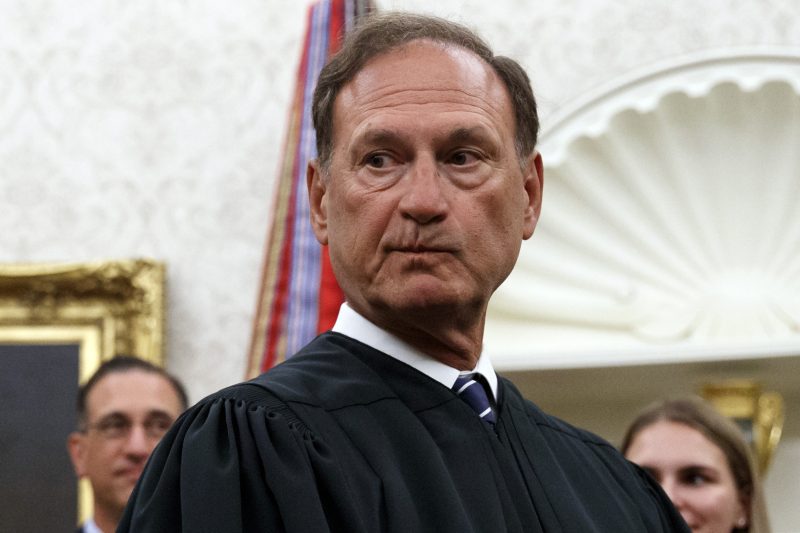Samuel Alito and the Illusion of Judicial Impartiality
In the realm of American jurisprudence, judicial impartiality is a cornerstone principle that underpins the legitimacy and fairness of the legal system. Judges are expected to set aside personal biases, political beliefs, and external influences when deciding cases, ensuring that justice is meted out in an objective and unbiased manner. However, recent events have cast doubt on the perceived impartiality of Supreme Court Justice Samuel Alito.
Justice Alito, a conservative stalwart on the bench, has long been associated with a strict interpretation of the law and a skepticism towards progressive legal doctrines. His opinions and dissents in various cases have often reflected his conservative ideology, sparking debates about the extent to which personal beliefs influence judicial decision-making. While all justices bring their own perspectives to the bench, the question arises whether Justice Alito’s judicial philosophy aligns too closely with his personal convictions, potentially compromising his ability to remain impartial.
One notable example of this perceived lack of impartiality is Justice Alito’s dissent in the landmark case of Obergefell v. Hodges, which legalized same-sex marriage nationwide. In his dissent, Alito argued that the Court was overstepping its bounds and infringing on the democratic process by imposing its own views on the issue. While dissenting opinions are a normal part of judicial discourse, Justice Alito’s strong opposition to same-sex marriage, as evidenced by his dissent, raises concerns about the extent to which personal beliefs influence his legal reasoning.
Moreover, Justice Alito’s public appearances and statements outside the courtroom have further fueled speculation about his impartiality. From delivering controversial speeches at conservative gatherings to expressing his views on hot-button issues such as abortion and gun rights, Justice Alito has faced criticism for engaging in activities that could call into question his ability to remain neutral and detached when deciding cases.
The perception of judicial impartiality is crucial for maintaining public trust in the judicial system. When a justice’s personal beliefs and actions sow doubt about their ability to adjudicate cases fairly and without bias, the very foundation of justice is undermined. As Justice Alito continues to shape American jurisprudence with his conservative jurisprudence, it becomes increasingly important for him to demonstrate a commitment to impartiality and the rule of law, irrespective of his personal convictions.
In conclusion, the issue of judicial impartiality is a complex and nuanced one that goes to the heart of the judicial function. While justices like Samuel Alito bring valuable perspectives and experiences to the bench, it is essential for them to uphold the principles of impartiality and fairness that are essential to the integrity of the legal system. As Justice Alito navigates a legal landscape fraught with political and ideological divisions, the onus is on him to ensure that his judicial decisions are guided by the law and not by personal inclinations. Only by upholding the highest standards of impartiality can Justice Alito fulfill his duty to administer justice without fear or favor.

